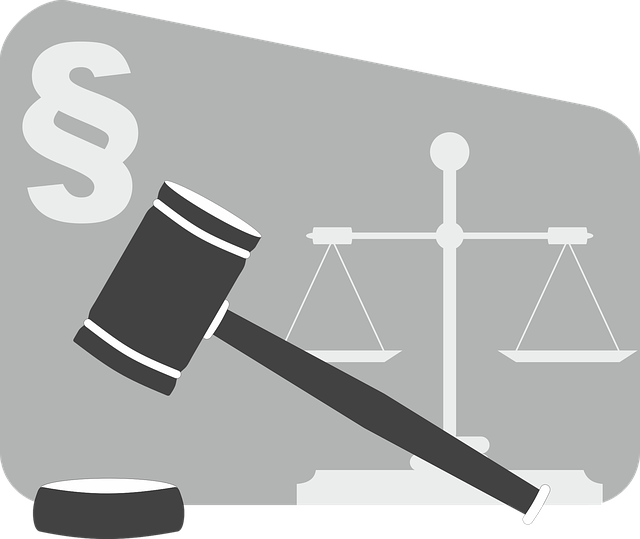An RF Regulatory Agency Investigation ensures radio frequency (RF) technologies in healthcare comply with safety standards, balancing enforcement with affected entities' rights. These inquiries involve scrutinizing device design, testing protocols, and manufacturer practices, aiming to identify and rectify violations threatening public health. Understanding the Healthcare Regulatory Litigation Process is crucial for businesses operating within this sector, as it involves demonstrating compliance, providing documentation, and addressing concerns to mitigate legal consequences. Effective navigation requires strategic white-collar defense strategies and meticulous documentation throughout development, manufacturing, and distribution stages.
“Unraveling the Complexities of RF Regulatory Agency Investigations: A Comprehensive Guide
RF (Radio Frequency) technologies underpin modern life, from healthcare devices to communication networks. This article offers an in-depth exploration of RF Regulatory Agency Investigations, a crucial process ensuring these technologies adhere to safety and performance standards. We delve into the healthcare sector’s unique considerations, as this industry faces heightened regulatory scrutiny due to its critical nature. From understanding the investigation triggers and notification processes to examining legal defenses and potential outcomes, this guide provides a clear pathway for navigating the complex landscape of healthcare regulatory litigation.”
- What is an RF Regulatory Agency Investigation?
- – Definition and purpose
- – Roles of the agency and affected parties
- The Healthcare Sector and RF Regulations
What is an RF Regulatory Agency Investigation?

An RF Regulatory Agency Investigation is a formal process undertaken by specialized government bodies tasked with overseeing radio frequency (RF) technologies and their applications, especially in healthcare settings. These agencies play a crucial role in ensuring that products emitting RF energy, such as medical devices, comply with safety standards to protect patients and users. The investigation process involves a thorough examination of various aspects, including device design, testing protocols, and manufacturer practices, to verify adherence to regulatory guidelines.
Understanding the healthcare regulatory litigation process is essential for businesses operating within this sector. For his clients, navigating these investigations can be complex, especially when dealing with white-collar and economic crimes. Each respective business must be prepared to demonstrate compliance, provide documentation, and address any concerns raised during the inquiry to mitigate potential legal consequences.
– Definition and purpose

RF Regulatory Agency Investigations play a pivotal role in ensuring compliance with healthcare regulations, especially regarding RF (radio frequency) technologies and their applications. These investigations are designed to uncover potential violations, from manufacturing defects to unauthorized transmissions, that could pose risks to public health and safety. Understanding Healthcare Regulatory Litigation Process is crucial for stakeholders to navigate the complexities of these inquiries effectively.
The process involves meticulous examination of equipment, documentation, and practices at every stage of the investigative and enforcement process. By leveraging their expertise and unprecedented track record, regulatory agencies identify non-compliance, issue warnings, and enforce penalties. Those involved should be prepared for a thorough review, encompassing technical aspects and legal considerations, to ensure adherence to standards and avoid potential civil or criminal liabilities, including general criminal defense strategies.
– Roles of the agency and affected parties

When an RF Regulatory Agency initiates an investigation, it involves a complex interplay between the agency’s responsibilities and the rights of affected parties. These investigations are crucial for ensuring compliance with wireless communication standards and safety protocols. The agency’s role is to protect public health and welfare by enforcing regulations related to radiofrequency (RF) devices. They conduct thorough examinations into allegations of non-compliance, which can stem from a variety of issues, including technical malfunctions or intentional misreporting.
Affected parties, such as manufacturers, distributors, and healthcare providers, have significant stakes in these investigations. The RF Regulatory Agency’s process involves gathering evidence, conducting interviews, and analyzing data to build a comprehensive case. Throughout this process, affected entities may collaborate with legal representatives specializing in healthcare regulatory litigation, especially when facing potential penalties or legal repercussions, including white-collar and economic crimes charges. Given the nationwide impact of these regulations, understanding the general criminal defense strategies and navigating across the country’s legal landscape is essential for all parties involved.
The Healthcare Sector and RF Regulations

In the dynamic landscape of healthcare, where technology is rapidly advancing and patient safety is paramount, understanding the RF regulatory environment is crucial. The healthcare sector is tightly regulated to ensure the safety and efficacy of medical devices, including those utilizing radiofrequency (RF) technologies. This includes a robust process for addressing any potential non-compliance or legal issues that may arise during device development, manufacturing, or distribution.
The Healthcare Regulatory Litigation Process involves careful navigation through complex rules and guidelines set by RF regulatory agencies. For instance, avoiding indictment and seeking a complete dismissal of all charges are common goals in white collar defense strategies employed by healthcare organizations. This process demands meticulous documentation, transparent communication with regulators, and a proactive approach to risk management to steer clear of legal complications.
RF Regulatory Agency investigations play a crucial role in ensuring compliance with radio frequency (RF) standards, particularly in the healthcare sector. By understanding the investigation process, from defining issues to resolving disputes, organizations can effectively navigate these reviews. The key lies in proactive engagement, thorough documentation, and collaborative problem-solving between agencies and affected entities. Embracing this process is essential for maintaining regulatory adherence and fostering a robust healthcare environment that prioritizes patient safety and innovative technology. This knowledge serves as a valuable guide for those navigating the intricate world of RF regulatory litigation.






